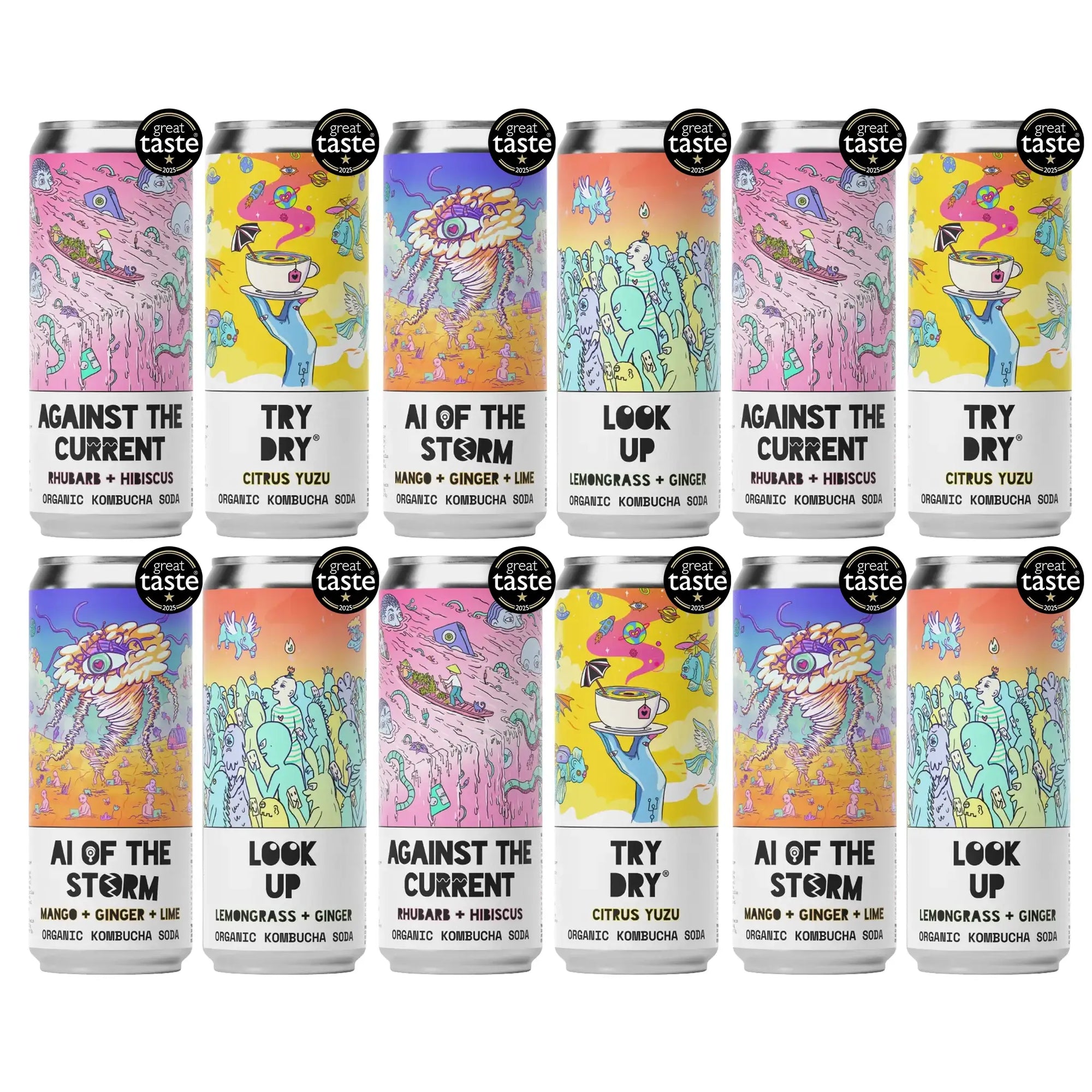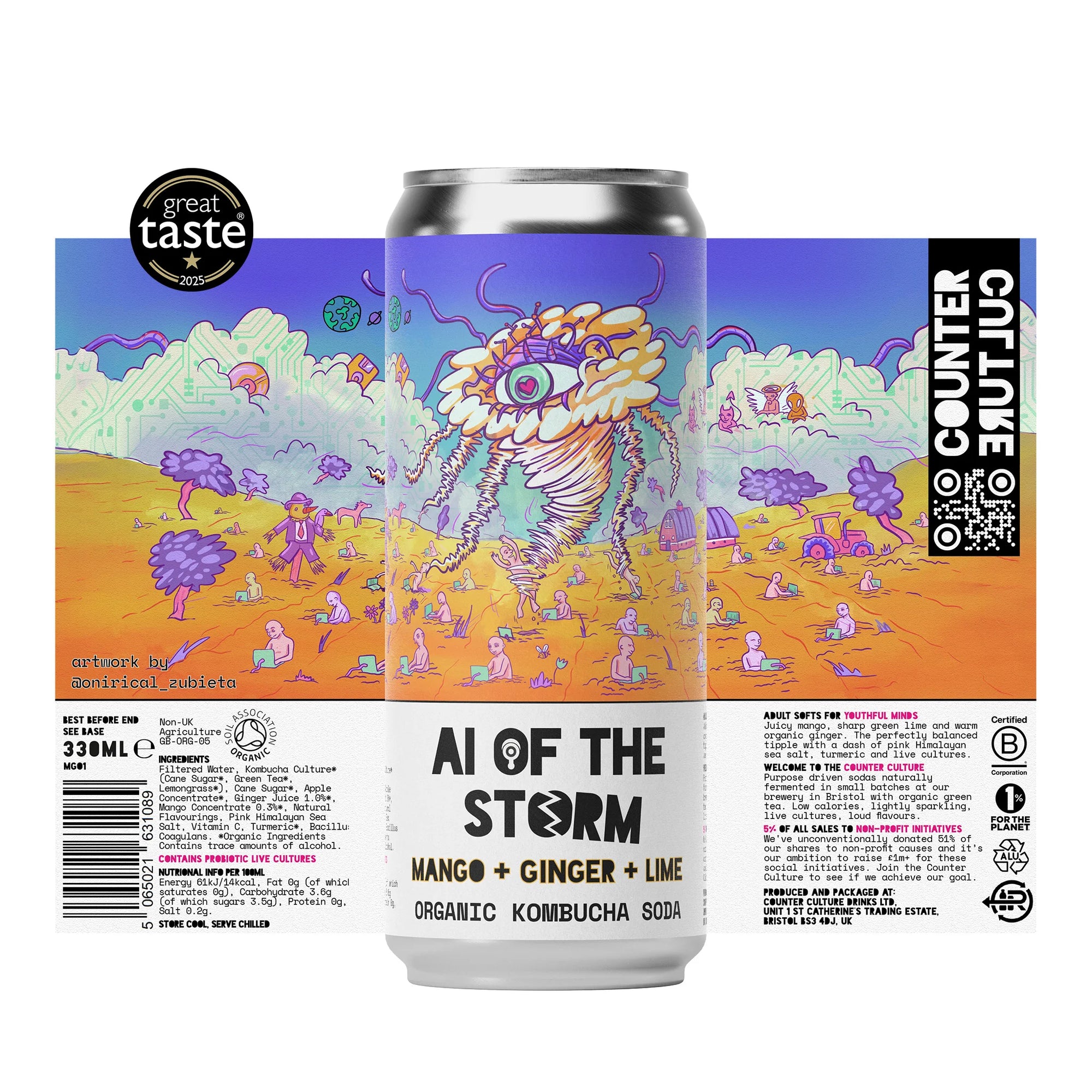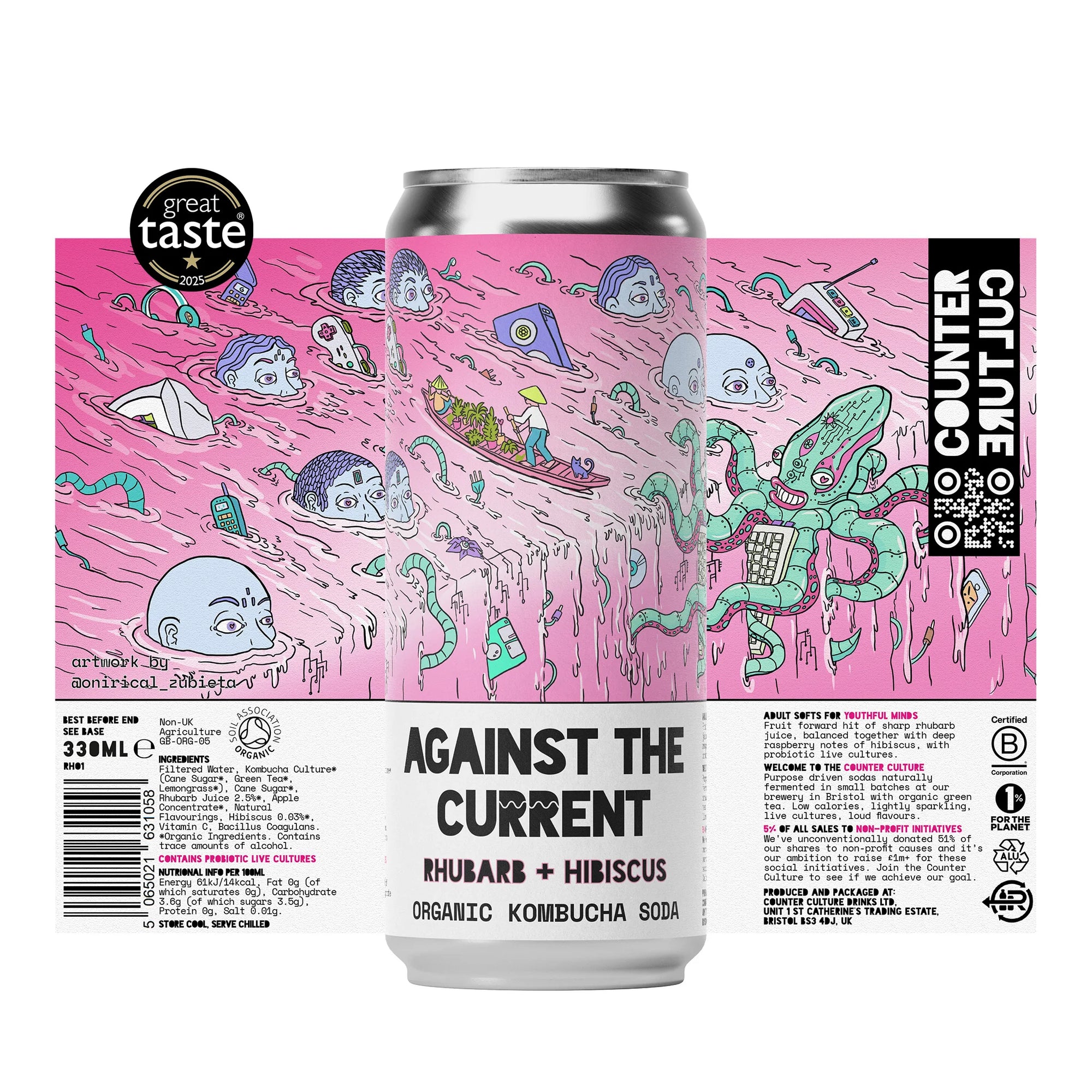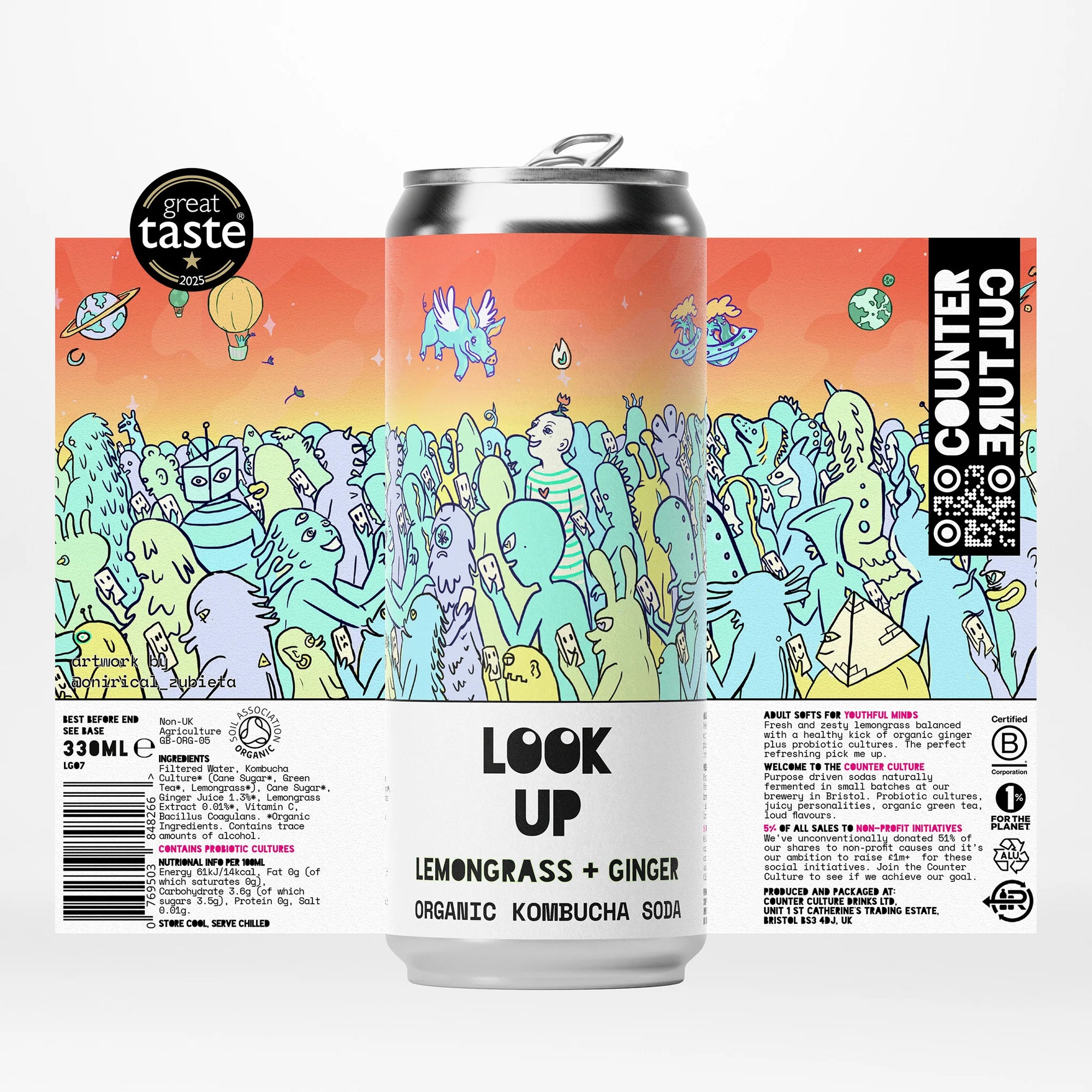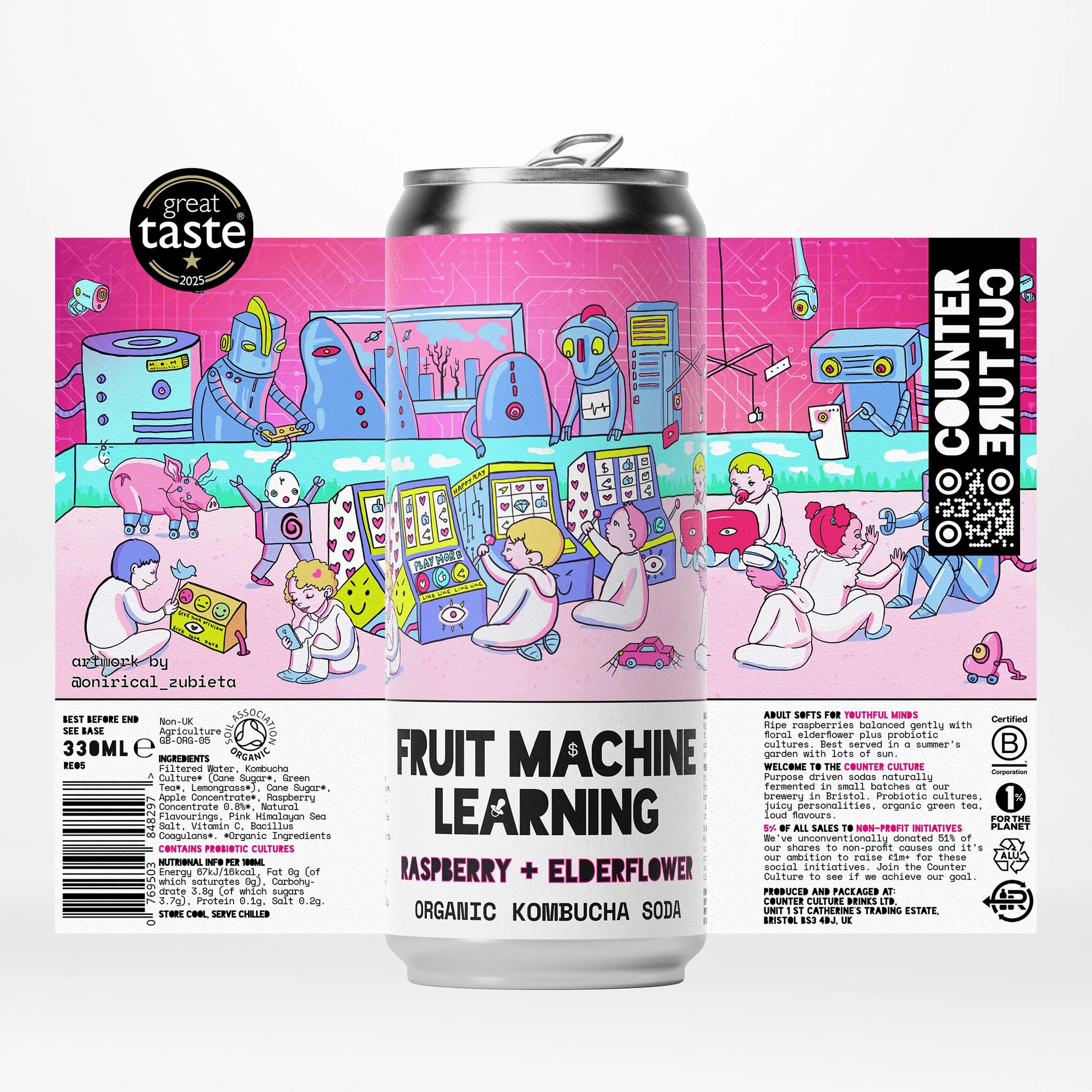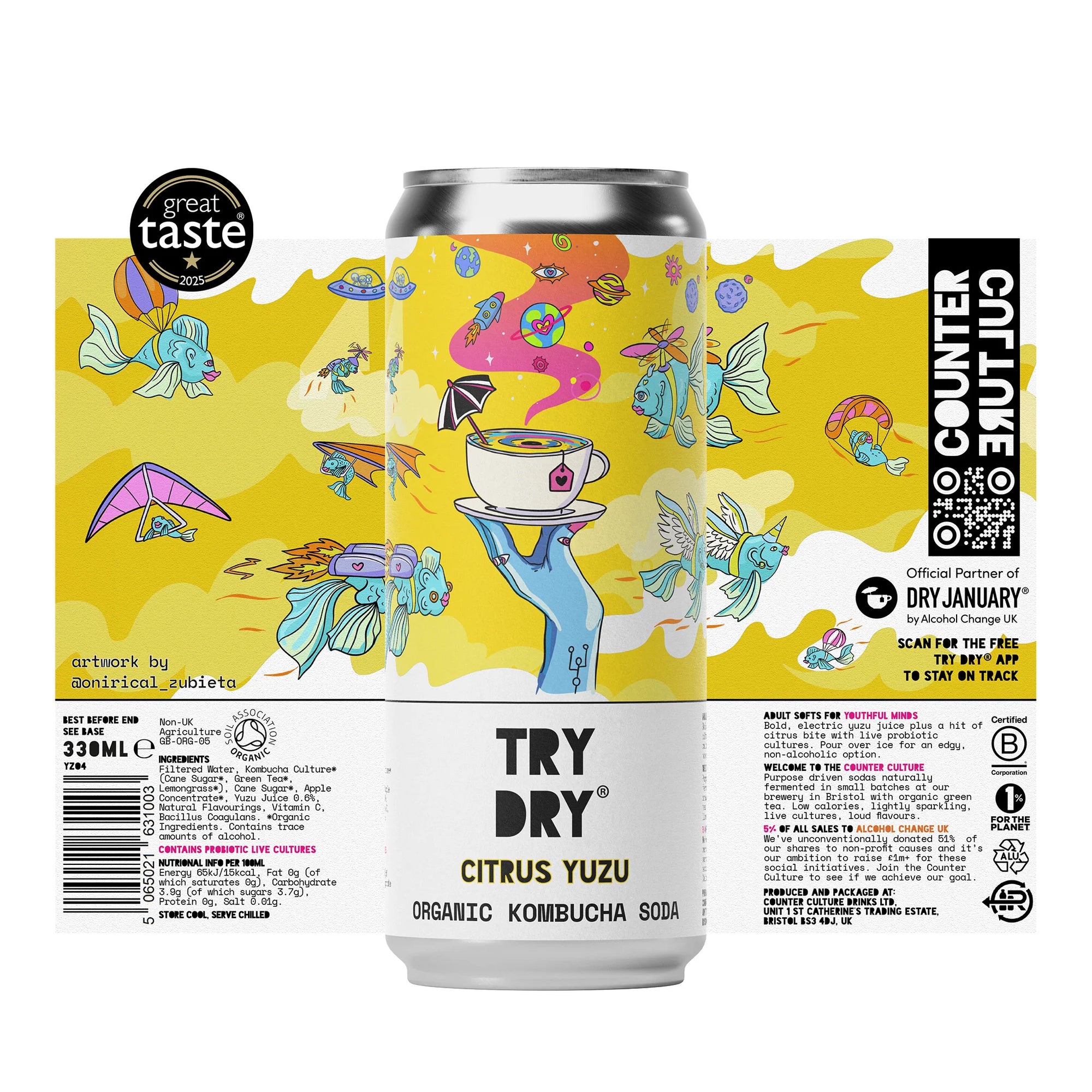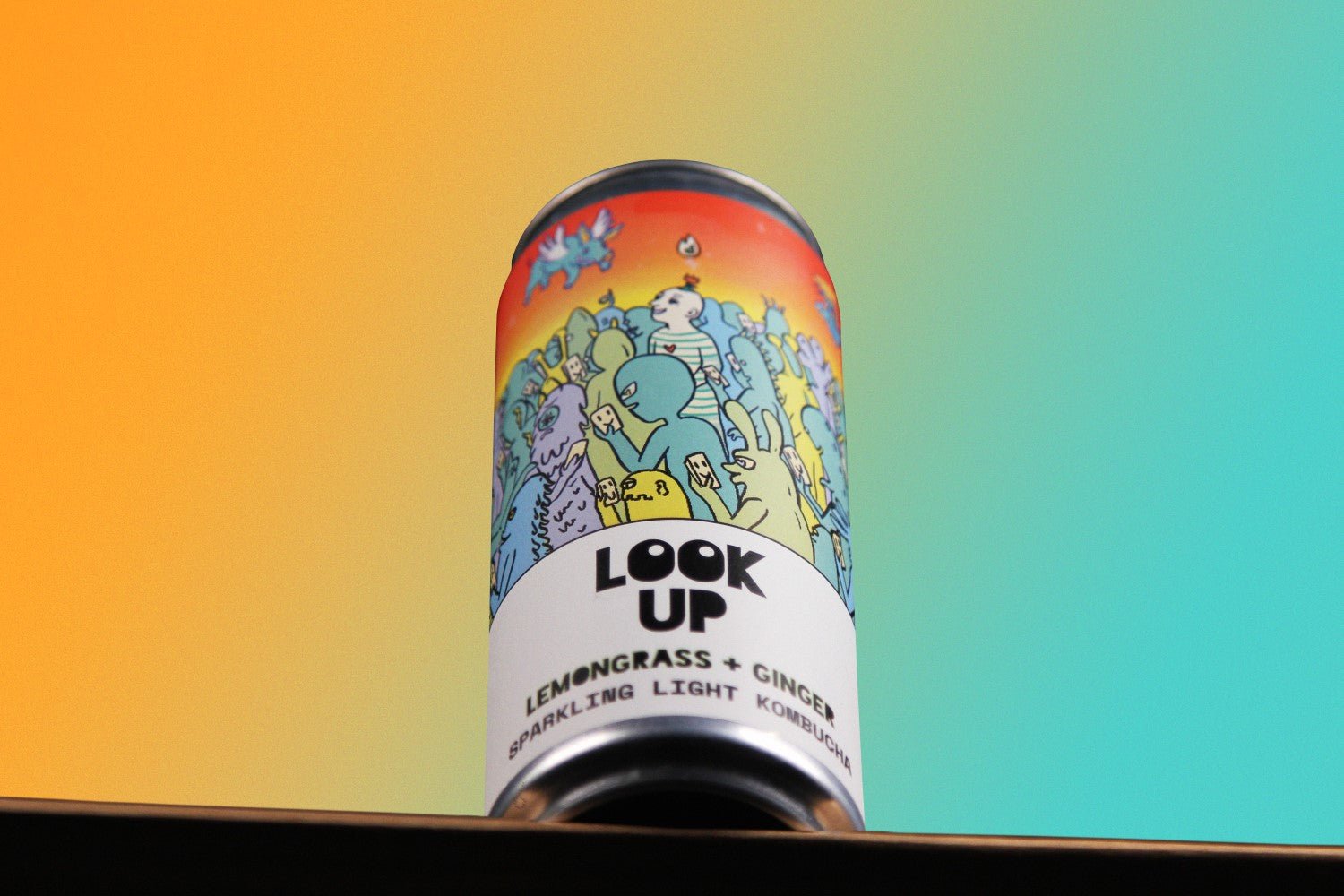
What is Kombucha?
Ever wondered what that fizzy, tangy fermented tea drink sitting in the health aisle is all about? Yep, we’re talking about kombucha. Kombucha isn’t just another trend—it’s a brew that combines science, history, and a whole lot of culture. So if you've been asking yourself 'What is Kombucha?' lately, stick around, and you’ll learn everything from its ancient origins to how you can start brewing your own batch enabling you to drink kombucha endlessly at home.
Definition and Composition
Kombucha is a fermented drink made from either green or black tea, sugar, and a symbiotic culture of bacteria and yeast (SCOBY). The SCOBY is a gelatinous mass of microorganisms that feeds on the sugar in the tea, producing a fermented beverage rich in probiotics, antioxidants, and other beneficial compounds. The fermentation process typically takes anywhere from a week to a month, resulting in a lightly carbonated drink with a vinegary taste.
Introduction to Kombucha Understanding the Basics
Ever wondered what that fizzy, tangy fermented tea drink sitting in the health aisle is all about? Yep, we’re talking about kombucha. Kombucha isn’t just another trend—it’s a brew that combines science, history, and a whole lot of culture. Stick around, and you’ll learn everything from its ancient origins to how you can start brewing your own batch at home.
The History and Origins of Kombucha
Let’s take a trip back in time to begin to answer what is kombucha. Kombucha’s story begins over 2,000 years ago, believed to have originated in Northeast China. Known initially as the “Tea of Immortality,” this fermented wonder spread through Asia and made its way to Russia and Eastern Europe. It wasn’t long before the rest of the world caught on wanting to drink kombucha.
Traditional kombucha has been consumed for over 2,000 years, evolving through various cultures and practices.
The name “kombucha” has its roots in Japan, where “kombu” means kelp and “cha” means tea. Interestingly, there’s no kelp involved, but the name stuck. This ancient brew has been passed down through generations drinking kombucha, evolving and adapting along the way. Fast forward to today, and kombucha is enjoying a well-deserved renaissance.
With its rich history, it’s no wonder kombucha has become a staple in modern kitchens and labs alike. It’s a testament to the power of tradition and innovation coming together in one tangy, effervescent drink.
The Science Behind Kombucha and Its Fermented Tea Process
For the scientists and brewers out there, let’s get into the nitty-gritty. Kombucha tea is essentially a fermented tea resulting from a process where yeast and bacteria break down sugars. The magic happens when you introduce a SCOBY (Symbiotic Culture of Bacteria and Yeast) to sweetened tea. The SCOBY consumes the sugars, producing a range of organic acids, gases, and a bit of alcohol.
The primary bacteria involved are Acetobacter and Gluconacetobacter. These little guys produce acetic acid, which gives kombucha its tangy flavour. The yeast, often Saccharomyces, contributes to the alcohol and carbon dioxide, making it fizzy. The entire process usually takes about one to two weeks, depending on conditions like temperature and sugar content.
Understanding the fermentation process is crucial for both commercial and home brewers. It ensures consistency, safety, and optimal flavour. Plus, it’s just plain fascinating to see science in action, transforming simple ingredients into something extraordinary.
The Role of Kombucha in Sustainable Living Practices
We think drinking kombucha is a way of life. In today's world, sustainability is more important than ever, and kombucha fits right into this ethos. Brewing your own kombucha can significantly reduce waste. Think about it—you’re reusing bottles, cutting down on single-use plastics, and even utilising kitchen scraps for flavouring.
For those passionate about sustainable agriculture, kombucha offers a way to support organic farming practices. Many commercial kombucha brands source their tea and sugar from organic farms, promoting healthier ecosystems.
But the sustainability doesn't stop there. The by-products of kombucha brewing, like extra SCOBYs and leftover tea, can be repurposed. SCOBYs make excellent compost material or can be used in creative projects like making vegan leather. The possibilities are endless and align perfectly with a zero-waste lifestyle.
How to Brew Your Own Kombucha at Home
Ready to get your hands dirty? Brewing and drinking kombucha at home is easier than you might think. Here’s a simple guide to get you started.
Step 1 Gather Your Ingredients and Supplies
You’ll need:
-
A SCOBY
-
Starter tea (from a previous batch or store-bought kombucha)
-
Black or green tea (loose leaf or tea bags)
-
Sugar
-
A glass jar
-
A cloth cover and rubber band
Step 2 Brew the Black or Green Tea
Boil water and steep your tea leaves for about 10-15 minutes. Add sugar while the tea is hot, and stir until dissolved. Allow the sweetened tea to cool to room temperature.
Step 3 Combine and Ferment
Pour the cooled tea into your glass jar, add the starter tea, and gently place the SCOBY on top. Cover the jar with a cloth and secure it with a rubber band. Store it in a warm, dark place.
Step 4 Wait and Taste
Fermentation takes about 7-14 days. Start tasting around day 7. When it reaches your preferred tanginess, remove the SCOBY and bottle your kombucha.
Brewing your own kombucha not only saves money but also lets you experiment with flavours and strengths. Plus, there’s something incredibly satisfying about crafting your own brew from scratch.
Kombucha Varieties and Flavors
Once you've mastered the basics, it's time to get creative. Kombucha can be flavoured in countless ways, offering a palette as diverse as your imagination.
Fruity Delights
Add fruits like berries, mango, or citrus during the second fermentation. They not only add flavour but also extra fizz.
Herbal Infusions
Experiment with herbs like mint, basil, or lavender. They bring unique aromas and healthful properties to your brew.
Spicy Twists
For those who like a kick, try adding ginger, turmeric, or even chilli. These spices add depth and complexity to your kombucha.
Flavouring kombucha is an art and a science. Keep experimenting until you find your perfect blend. The variety of flavours ensures there's a kombucha for every palate.
Kombucha Health Benefits and Gut Health: Separating Fact from Fiction
You’ve probably heard about the kombucha health benefits, especially for gut health. Many people drink kombucha for its potential health benefits, including improved digestion and gut health. At Counter Culture we love to drink kombucha as an alternative to alcoholic drinks. But what’s the real deal? Kombucha contains probiotics—live bacteria and yeasts that are good for your digestive system. These probiotics are similar to the ones found in yogurt and other fermented foods.
However, it’s essential to look at the facts. While kombucha does contain beneficial microbes, the exact strains and their effects can vary. It’s not a one-size-fits-all solution, but it can be a valuable addition to a balanced diet. While drinking kombucha can be beneficial, it should be part of a broader, healthy lifestyle and not viewed as a standalone solution.
Understanding the science behind kombucha’s microbial content can help you make informed choices. Always listen to your body and consult with healthcare professionals if you have specific health concerns.
Risks and Side Effects
While kombucha is generally considered safe to consume, there are some risks and side effects to be aware of. Drinking too much kombucha can lead to reactions such as headache, nausea, GI distress, or ketoacidosis (a medical emergency). Additionally, lead toxicity is possible if homemade kombucha is fermented in clay vessels or other containers that leach lead into the finished beverage. Sanitation can also be an issue when brewing homemade kombucha, leading to contamination with undesirable fungi and overproduction of yeast.
Kombucha's Impact on the Beverage Industry
Kombucha is shaking up the beverage industry in more ways than one. It's not just a trendy drink; it's a movement that's challenging traditional beverage giants. With its unique fermentation process and diverse flavour profiles, kombucha offers something different from the usual soda or juice.
Major beverage companies are taking notice and investing in kombucha brands. This shift is paving the way for more innovation and variety in the market. For brewers, this presents exciting opportunities to experiment and grow.
The rise of kombucha also reflects a broader trend towards healthier, more natural beverages. It's a sign of changing consumer preferences and a move towards more mindful consumption.
Kombucha in Culinary Applications
Kombucha isn't just for drinking. Its unique flavour and acidity make it a fantastic ingredient in various culinary applications.
Marinades and Dressings
Use kombucha as a base for marinades or salad dressings. Its acidity tenderises meat and adds a zesty kick to salads.
Baking
Believe it or not, kombucha can be used in baking. It adds moisture and a subtle tang to cakes, breads, and muffins.
Cocktails
Kombucha makes an excellent mixer in cocktails. Its effervescence and complex flavours can elevate your favourite drinks.
Experimenting with kombucha in the kitchen opens up a world of culinary possibilities. Its versatility makes it a valuable addition to any chef's toolkit.
Kombucha's Cultural Significance
Kombucha is more than just a fermented beverage; it’s a cultural phenomenon. From ancient Chinese dynasties to modern-day hipster cafes, kombucha has found a place in various cultures around the world.
In many societies, kombucha is seen as a symbol of health and wellness. It’s often associated with holistic living and natural remedies. This cultural significance adds another layer to its appeal.
Understanding kombucha’s cultural roots can deepen your appreciation for this unique beverage. It’s a testament to how food and drink can transcend borders and connect people.
Tips for Choosing a High-Quality Kombucha
With the growing popularity of kombucha, it’s essential to choose a high-quality product that meets your needs. Here are some tips to help you make an informed decision:
-
Check the Ingredients: Look for kombucha products that use high-quality, organic ingredients, such as green or black tea, and minimal added sugars. The quality of the tea and sugar can significantly impact the final product’s taste and health benefits.
-
Verify the SCOBY: Ensure that the product contains a live SCOBY, which is essential for the fermentation process and the production of beneficial compounds. A live SCOBY indicates that the kombucha is actively fermented and rich in probiotics.
-
Check the Sugar Content: Opt for kombucha products that are low in sugar content and contain fewer calories than soft drinks. Excess sugar can negate some of the health benefits of kombucha, so it’s best to choose a product with a balanced sweetness.
-
Consider the Brand Reputation: Choose a reputable brand that follows good manufacturing practices (GMPs) and has a track record of producing high-quality products. Established brands are more likely to adhere to safety standards and provide consistent quality.
-
Read Reviews and Labels: Check online reviews and product labels to ensure that the product meets your needs and preferences. Reviews can provide insights into the taste, quality, and effectiveness of the kombucha, helping you make a more informed choice.
By following these tips, you can choose a high-quality kombucha product that provides the potential health benefits and unique taste you’re looking for.
The Future of Kombucha
What does the future hold for kombucha? With its growing popularity, the possibilities are endless.
Innovation
Expect to see more innovation in flavours, brewing techniques, and packaging. Kombucha is a fertile ground for creativity and experimentation.
Sustainability
Sustainability will continue to play a crucial role. From organic sourcing to eco-friendly packaging, kombucha brands are likely to lead the way in sustainable practices.
Mainstream Acceptance
Kombucha is poised to become a staple in households worldwide. Its unique appeal and health benefits make it a contender for mainstream acceptance.
The future of kombucha is bright. Whether you're a scientist, brewer, or casual drinker, there's something exciting on the horizon.
Conclusion
Drinking kombucha is more than just a trend. It's a blend of science, history, and culture, offering something for everyone. From its ancient origins to its modern-day applications, kombucha continues to captivate and inspire.
If you're curious and ready to join the army of people who drink kombucha, why not give it a try? Brew your own, experiment with flavours, and become part of a vibrant community of enthusiasts. The adventure awaits, and it's just a sip away.
Dive deeper into the world of kombucha and discover the endless possibilities. Cheers to your brewing journey!
